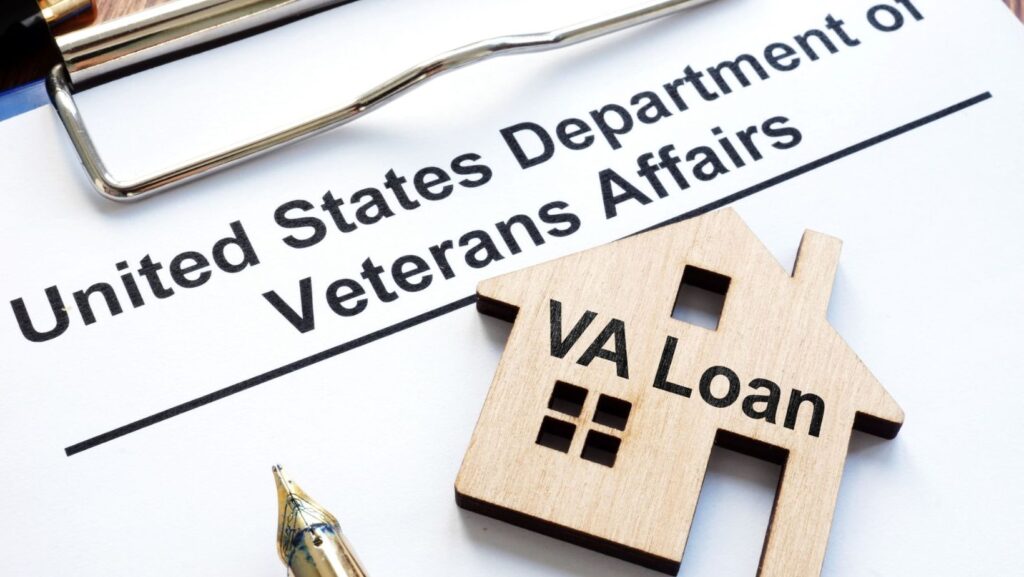
A VA home loan offers significant benefits for veterans, active-duty service members, and eligible spouses, including no down payment, competitive interest rates, and no private mortgage insurance (PMI). However, securing the best deal requires finding the right VA home loan lenders. With numerous options available, it’s essential to compare lenders based on loan rates, fees, customer service, and experience with VA loans.
Read on to learn how to find reputable VA home loan lenders.
Understanding VA Home Loans
VA loans, guaranteed by the U.S. Department of Veterans Affairs, can provide military borrowers with exceptional benefits like no down payment and competitive interest rates. By reducing lender risk, the VA enables more favorable loan terms that make homeownership accessible.
However, navigating the VA loan process requires working with experienced VA home loan lenders who understand the program’s unique requirements—from Certificate of Eligibility verification to VA-specific appraisal standards. While most mortgage lenders offer VA loans, specialists can streamline the process, often providing faster approvals, waived fees, and tailored guidance that general lenders may lack. Veterans should also prioritize lenders with proven VA experience to ensure they maximize their hard-earned benefits.
Key Factors to Consider When Choosing a VA Lender
Selecting the right VA lender ensures a smooth homebuying journey. Veterans should evaluate the following factors when deciding:
VA Loan Experience
Lenders experienced in VA loans are well-versed in the program’s specific guidelines, including the VA’s strict appraisal standards and funding fee calculations. Their expertise can help avoid common pitfalls, accelerate underwriting, and ensure smoother closings, making them a better choice for military borrowers seeking efficiency and reliability.
Competitive Interest Rates and Fees
VA loan interest rates and fees can differ by lender, making comparison critical. Some institutions impose higher origination fees or closing costs, significantly affecting long-term expenses. Obtaining Loan Estimates (LEs) from multiple lenders also allows borrowers to evaluate terms side-by-side, ensuring the most cost-effective choice.
Strong Customer Service and Reputation
Third-party reviews and official ratings can reveal patterns in lender performance, exposing potential red flags like slow processing or hidden fees. Prioritizing lenders with strong customer service ratings can also minimize communication breakdowns and ensure timely assistance throughout the VA loan journey.
Loan Turnaround Time
Lenders with established VA loan expertise often offer accelerated processing through efficient underwriting and familiarity with VA service requirements. Veterans facing competitive markets or lease expirations should seek lenders advertising streamlined VA timelines—some can close in 30 days versus the industry average of 45-60 days. Digital lenders frequently excel in speed.
Flexibility in Credit Requirements
The VA itself doesn’t mandate a minimum credit score, but most lenders typically require at least a 620 FICO (Fair Isaac Corporation) score. However, some specialized VA lenders may approve loan borrowers with poor credit scores as low as 580, particularly when compensating factors like stable income or residual income are part of their strong credit history.
 Where to Find VA Home Loan Lenders
Where to Find VA Home Loan Lenders
Veterans have multiple options for securing VA loan offerings, each with distinct advantages. These include:
Banks and Credit Unions
Traditional banks and credit unions are reliable sources for VA loans, with credit unions typically offering more competitive mortgage rates and lender fees. As member-owned institutions, credit unions return profits to qualified borrowers through lower interest rates and fewer closing costs, making them especially attractive for cost-conscious military borrowers. Their personalized service typically results in more flexible underwriting compared to larger banks.
Online Mortgage Lenders
Online VA lenders can leverage technology to provide quicker approval process and often lower rates due to reduced overhead. However, borrowers should verify licenses, read third-party reviews, and check registrations to avoid predatory lenders. Established digital lenders also offer both speed and reliability.
Mortgage Brokers
Mortgage brokers serve as intermediaries with access to multiple VA loan programs across various lenders. Their industry connections allow them to quickly match veterans with ideal loan terms while managing paperwork and lender communications. This expertise can prove particularly valuable for borrowers with unique financial situations or those seeking niche VA loan benefits like energy-efficient mortgages.
VA-Approved Direct Lenders
VA-exclusive lenders focus solely on military borrowers, mastering every program nuance from. Their specialization often translates to unique perks—discounted rates, no origination fees, or dedicated military loan officers who speak the language of VA entitlements and COE (Certificate of Eligibility) requirements fluently.
Steps to Compare VA Lenders
The process of selecting the right VA loan provider requires careful evaluation. Borrowers can start by obtaining a pre-approval letter, which confirms their borrowing power but also makes their home offer more competitive in tight markets. Next, they need to request and compare Loan Estimates (LEs) from at least three lenders—this document breaks down interest rates, origination fees, and closing costs, allowing for an apples-to-apples comparison.
Furthermore, borrowers shouldn’t overlook potential discounts—many lenders reduce current mortgage rates for automatic payments, military service longevity, or excellent credit scores. Finally, they should scrutinize all fee structures to avoid hidden charges, such as inflated underwriting or document preparation fees.
Common Mistakes to Avoid When Choosing a VA Lender
One critical error is failing to shop around – veterans who accept the first loan offer often pay higher rates or unnecessary fees. Comparing multiple lenders ensures borrowers secure the most competitive terms. Another pitfall is disregarding customer reviews, which reveal crucial insights about a lender’s responsiveness, transparency, and VA loan expertise.
Many borrowers also overlook the VA funding fee, a mandatory charge that significantly impacts loan costs. While this fee can be financed, understanding its effect on the overall mortgage is essential for accurate budgeting and long-term financial planning.
Conclusion
Finding the best VA home loan lenders requires research, comparison, and attention to lender expertise. By keeping the information mentioned above in mind, veterans can secure a loan that maximizes their benefits. Whether through banks, credit unions, or online lenders, choosing the right lender ensures a smooth homebuying process.

 Where to Find VA Home Loan Lenders
Where to Find VA Home Loan Lenders





